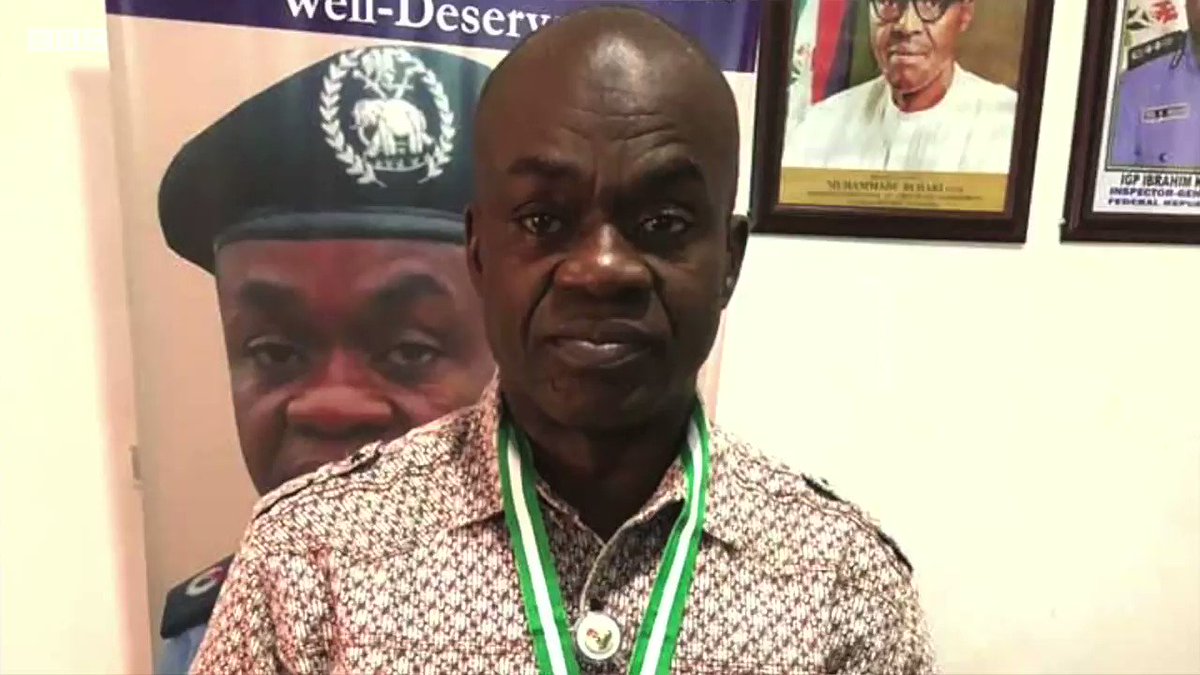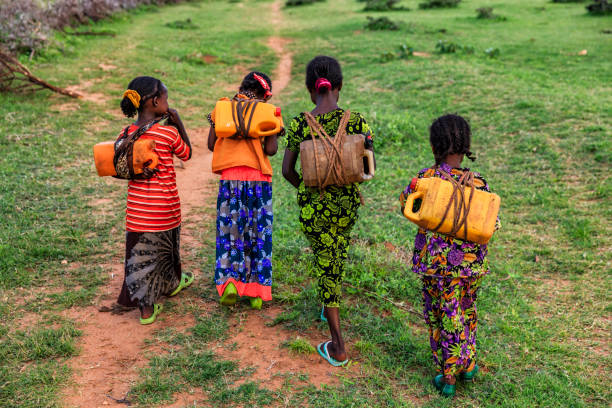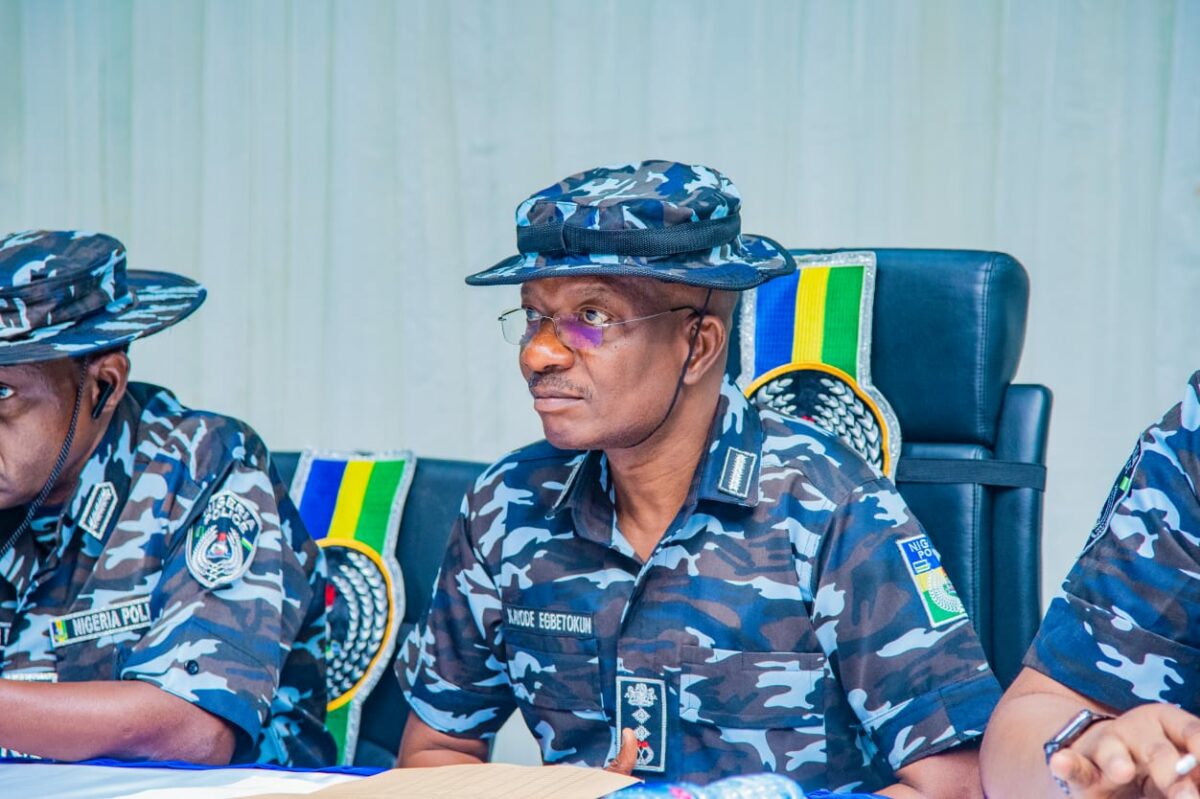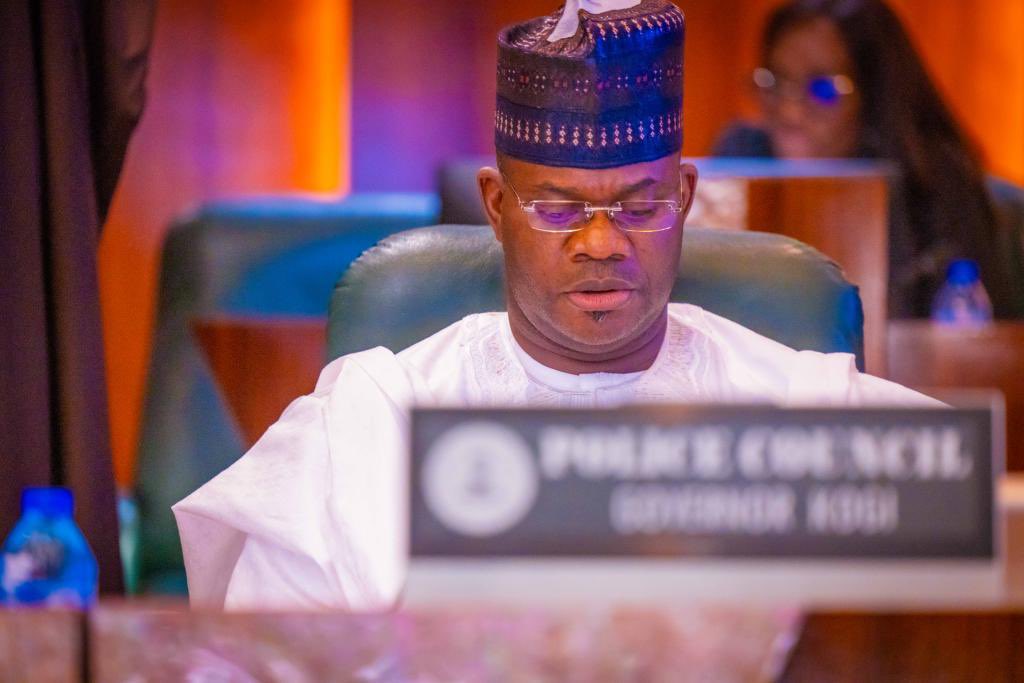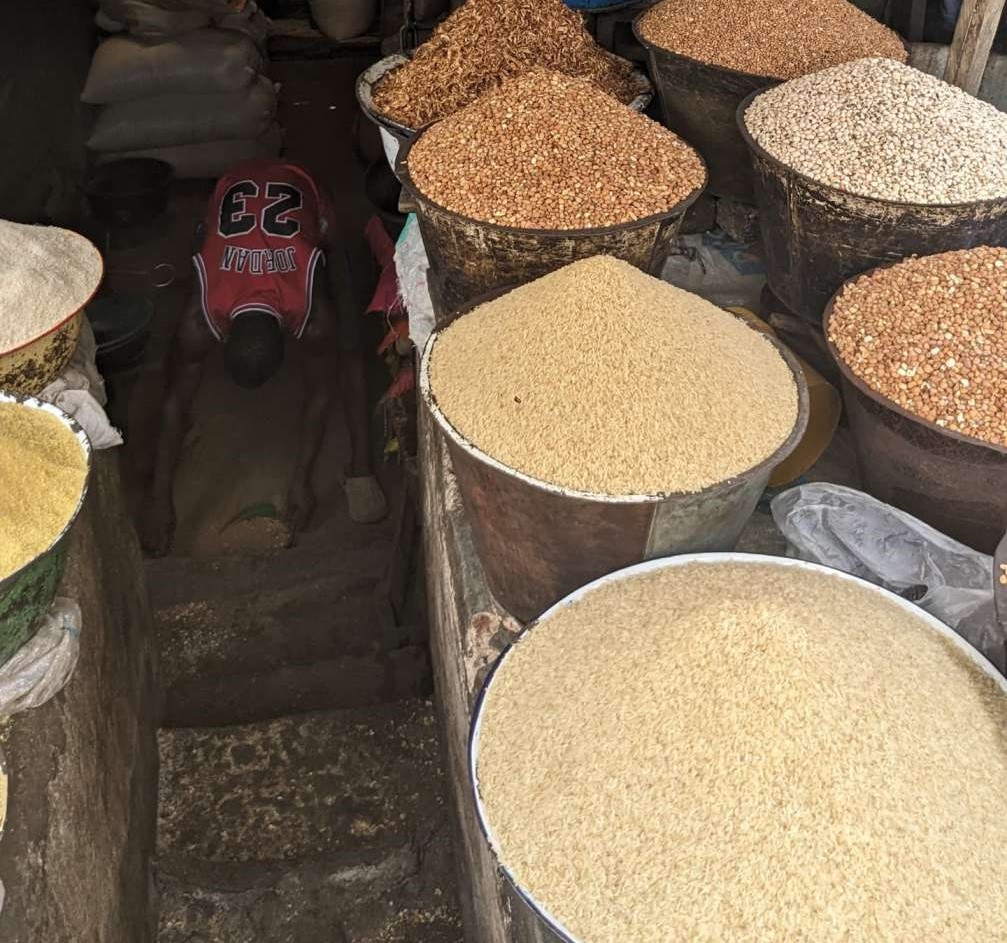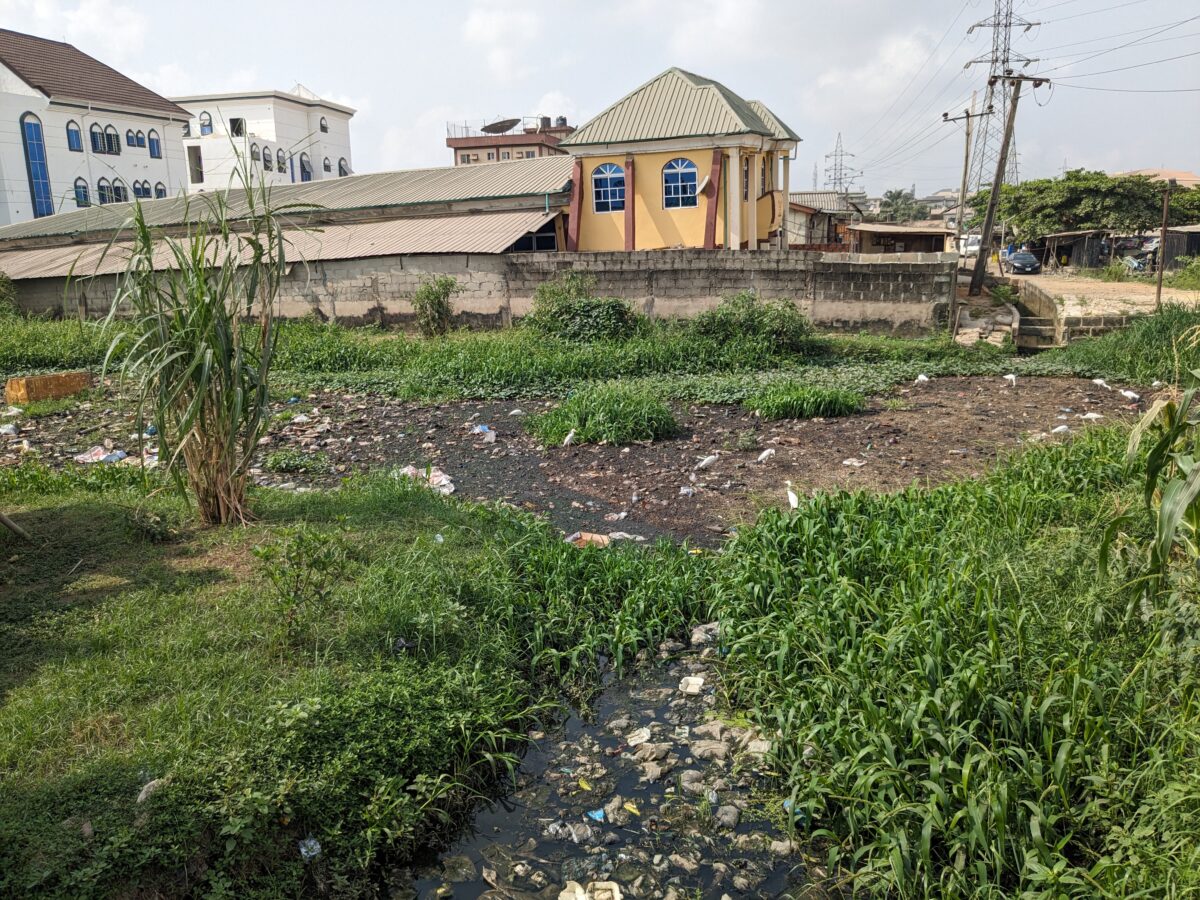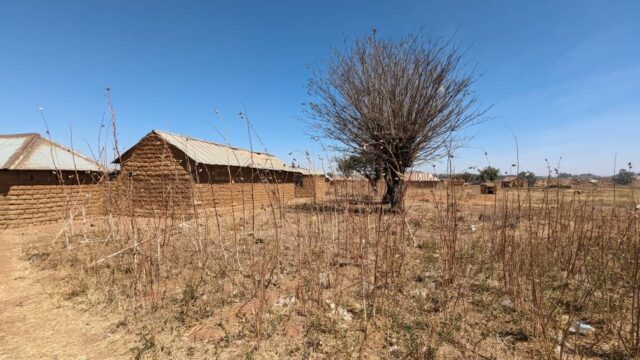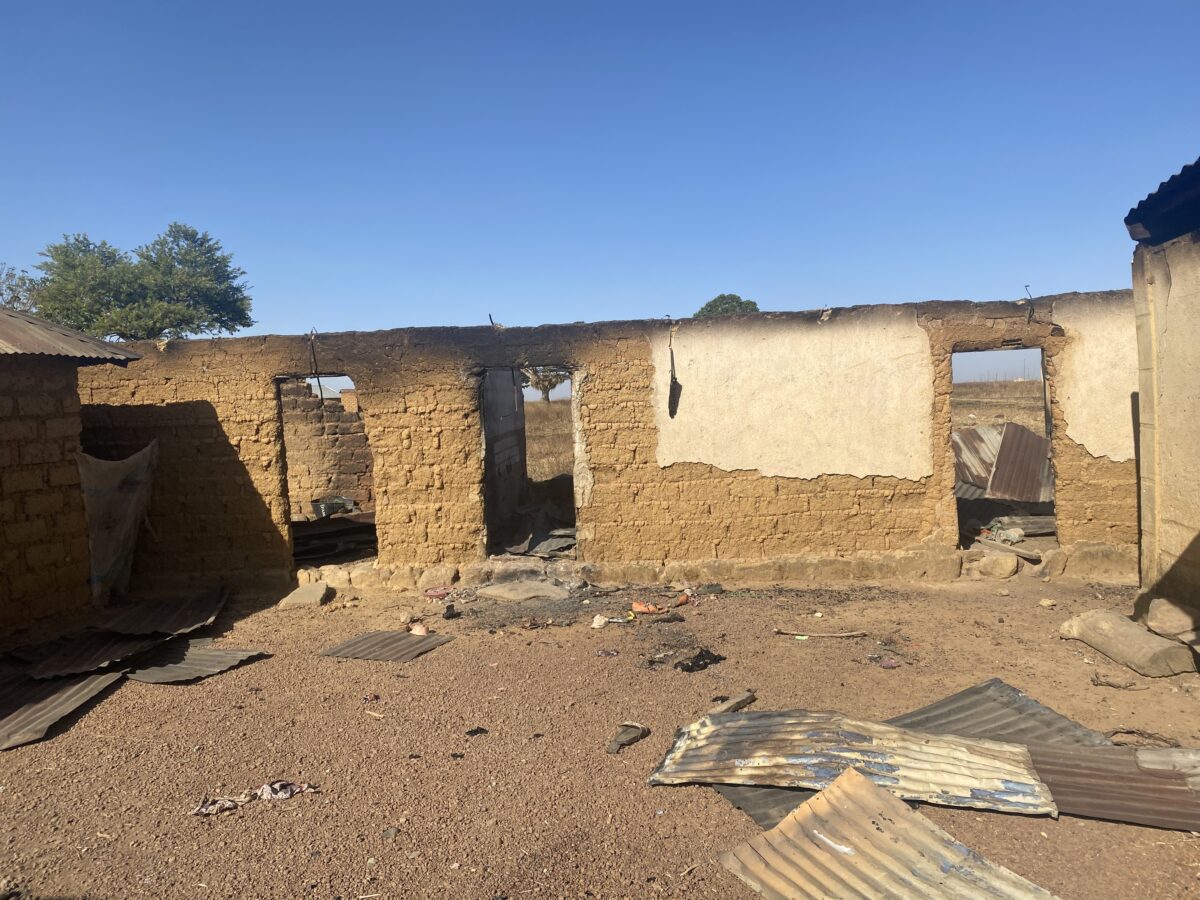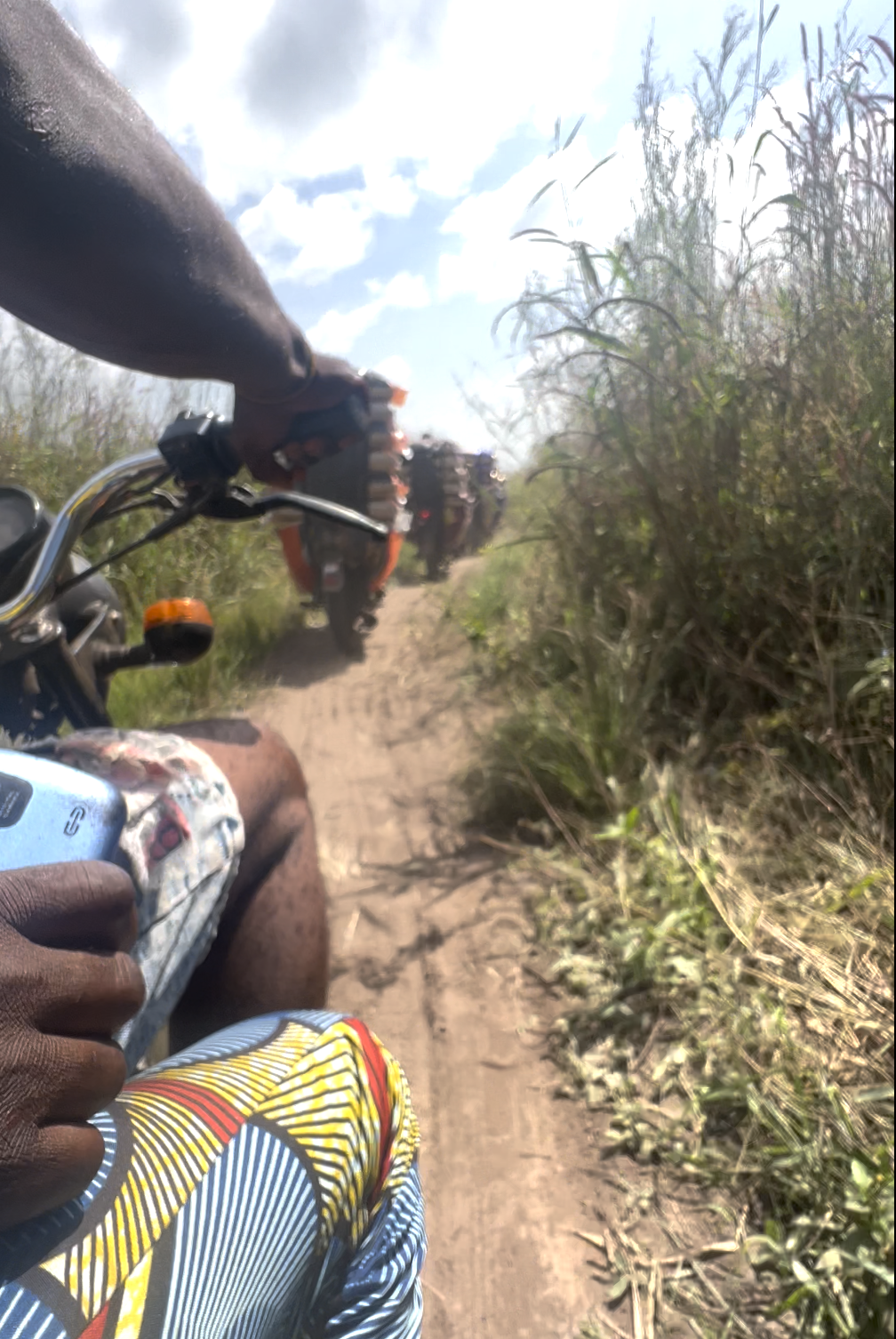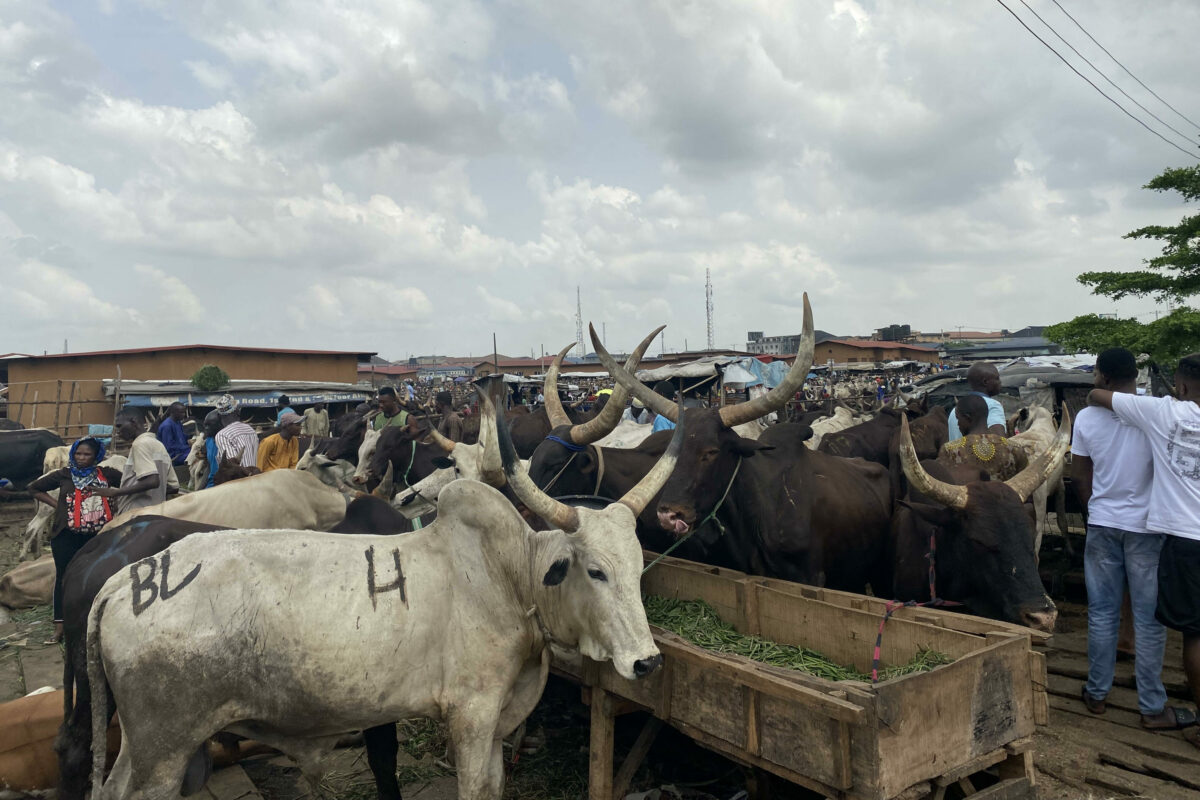He’s one of the most “renowned and revered” in the Nigeria Police Force, but he is an alleged murderer, rewarded for extrajudicially killing a civilian and attempting to bury the case. In the second part of this series, IBRAHIM ADEYEMI, who was in Kano, probes a bizarre case of murder of an innocent citizen by the police.
Dead silence envelopes the living room of Mallam Alfa Abdullahi when he is asked to detail how one of his sons was brutally killed. In what seems like a duel of secret mourning, everybody inside his house on Manniru Baba Street, Tundun Maliki, Kano State, goes mum.
The silence is soon broken by the heart-rending words of the 70-year-old man.
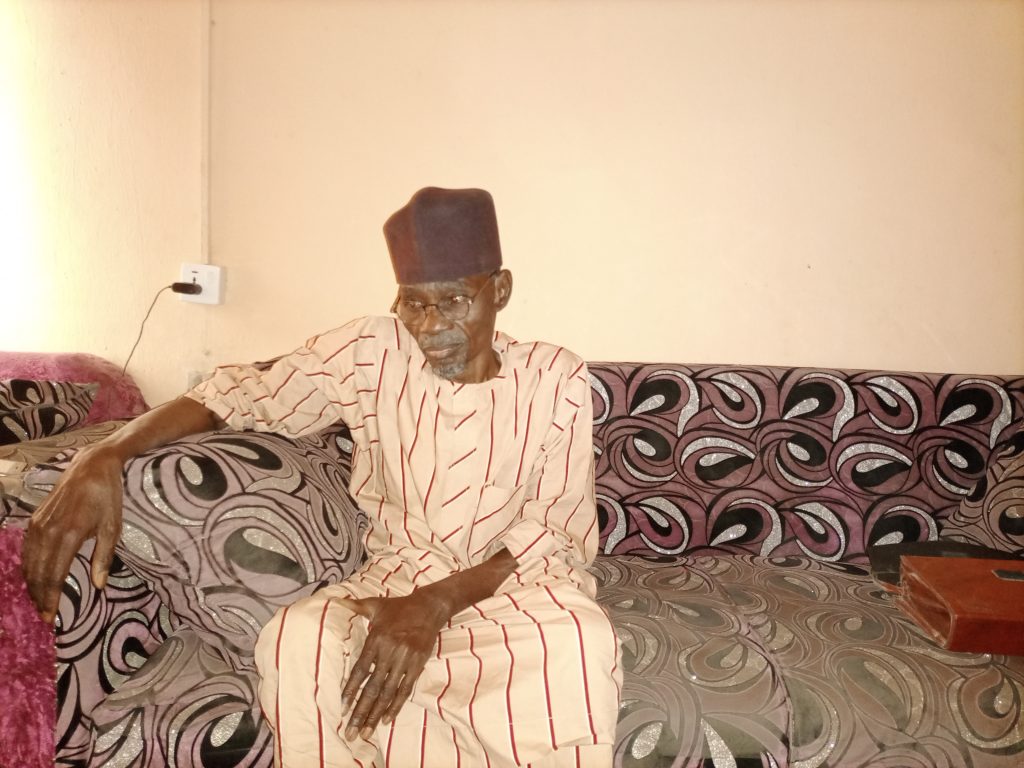
“The police officer just wasted my son’s life and swept the case under the carpet,” he says in a dreary tone that changes the mood of the atmosphere
Seven years after his son Hassan Abdullahi, 24, was murdered, the ailing, grieving man can still remember every detail of the incident “like it just happened yesterday”.
It was a fight between two people that could have been settled amicably. Two cousins had a disagreement over a minor matter in October 2013. But the case, as soon as it got to Sheka Police Station, Kano, was branded an armed robbery incident, then transferred to the Special Anti-Robbery Squad (SASR) section of the Kano State Police Headquarters, located in the Bompai area of the state.
“That was where they killed my son; they tortured him until he lost his consciousness and later died. They also injured his elder brother, Awalu Abdullahi,” he said — a claim corroborated by sources familiar with the case.
“They want to cheat us because they think we don’t know the law. It’s because we’re in the North; they can’t try that in the western region of the country, where people know their rights.”
COUNTING THE DEAD BY THE GUNS
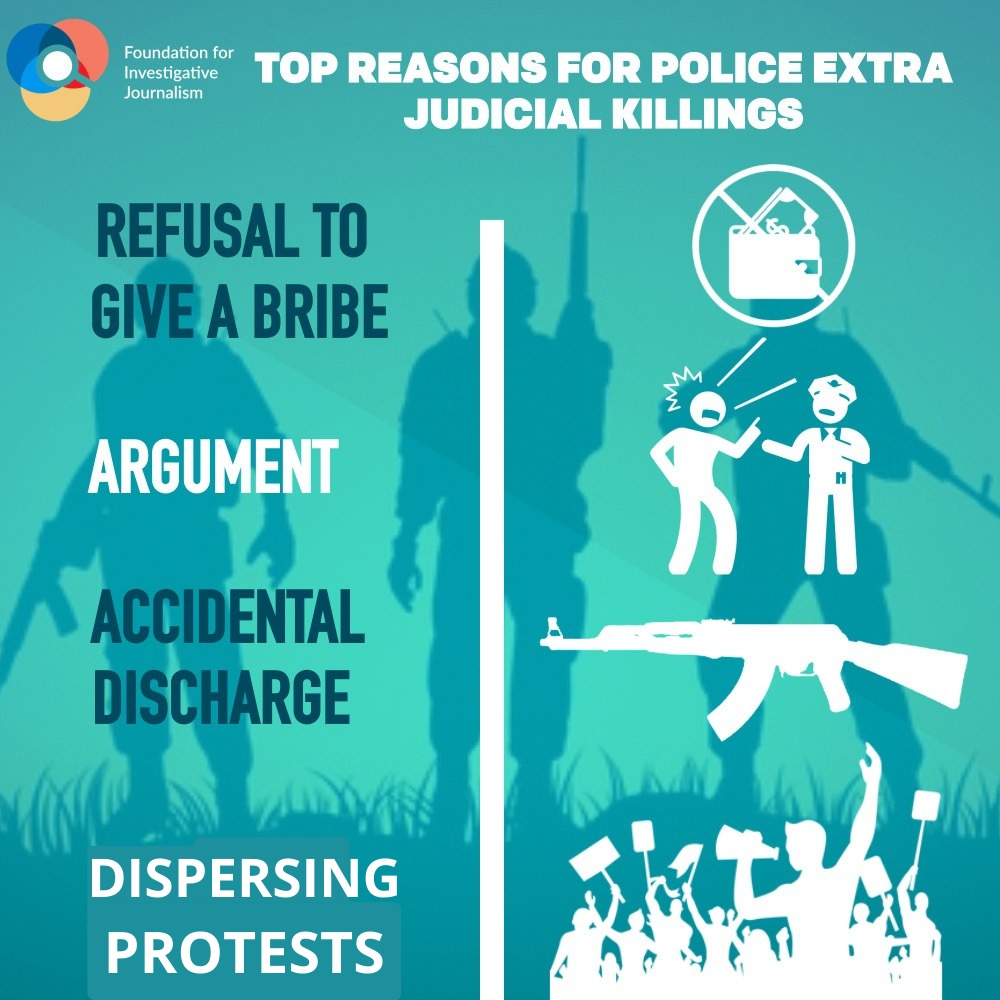
The Nigeria Police Force is widely believed to be the worst of its kind in the world. Apart from facts and figures by the World Internal Security and Police Index that justify this claim, recent events have proven that Nigeria’s policing institution is built on the foundation of corruption and ineptitude, which make the country’s criminal justice system an arena of injustice.
Apart their notoriety for bribery, police officers are known for operating extrajudicially. Between 2019 and 2020 alone, more than 90 Nigerians extrajudicially killed by the Police, a report by TheCable revealed. Reasons for such killings, according to the report, include refusal to give a bribe, argument, accidental discharge and attempt to disperse protests.
Recently, Nigerians trooped to the streets to demand an end to SARS, a unit of the Police notorious for extrajudicial executions. The protest, tagged #EndSARS, lingered for weeks, continuing even after the Inspector general of Police (IGP) announced the scrapping of the unit and its replacement with Special Weapon and Tactics (SWAT) unit.

But the angry protesters refused to leave the streets; they stressed that their demands were beyond replacing SARS with SWAT. The protests, which attracted the attention of the international community, continued with youth blocking major roads across the country until it was said to have been hijacked by hoodlums, thus banned. Policemen and soldiers injured and killed cvilians, especially in Lagos, where a yet unknown number of peaceful protesters were massacred.
However, despite public outcry for justice for victims of these killings, many of such cases have been neglected.
FROM MERRYMAKING TO BRAWLING WITH PRAISE SINGERS
October 16, 2013 was Sallah Day; families and friends converged on the residence of Mallam Abdullahi in Tundun Wakili, Kano, for merrymaking. Sahadatu Garba, 30, a cousin of the deceased, joined Awalu and others in commemorating the Eid-el-Kabir celebration in the house.
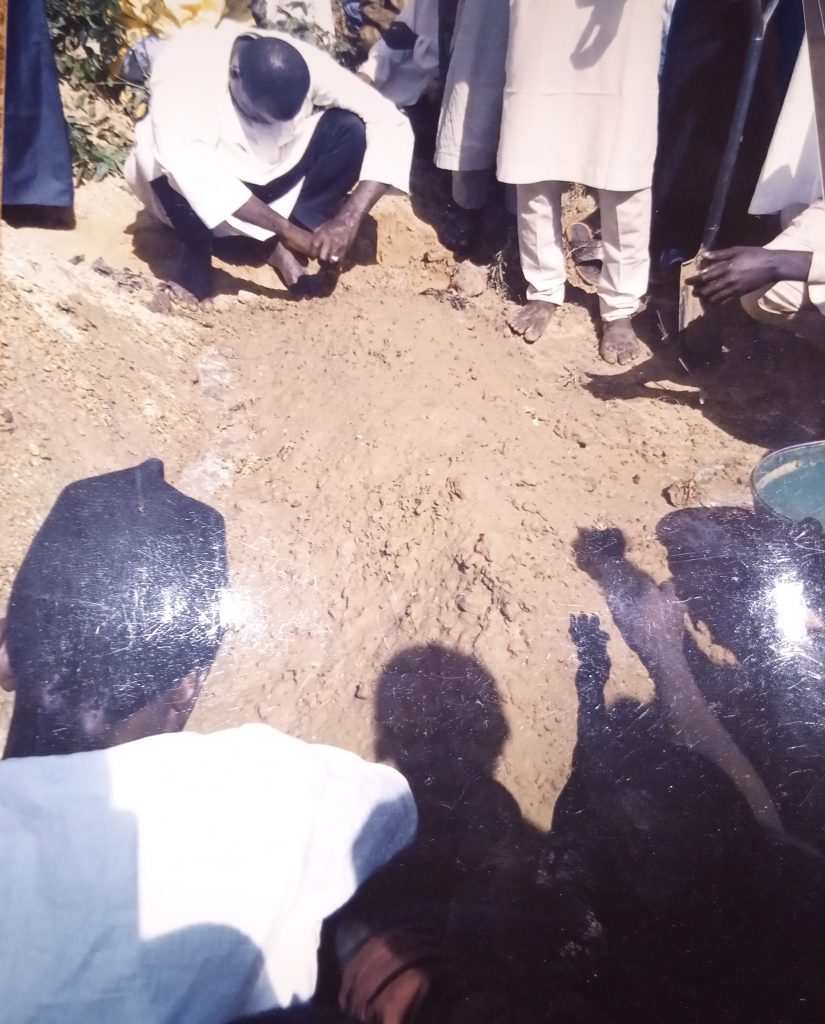
The merriment, mixed with songs of praise of Prophet Muhammad, continued until it was time for evening prayers (Maghrib) when Mallam Abdullahi asked the chanters to pause for the sake of the prayers they were about to observe. But the chanters who had been invited by Sahadatu were unhappy with how the elderly man told them to pause. “How could a man stop us from chanting the praise of the noble Prophet?” they murmured.
“I have never seen someone who hates the Prophet so much like this man,” one of them said of Mallam Abdullahi, still chanting.
Hassan chided the chanters for addressing his father rudely. He and Awalu ended up brawling with them and Sahadatu.
“Then, the second day, Sahadatu came with some police officers to arrest two of my sons; they were taken to the police statio,”says Mallam Abdullahi.
TORTURED TO STUPOR
The two brothers didn’t know they were in big trouble when Sahadatu came with the policemen to arrest them, until they landed in Sheka Police Station where they were accused of armed robbery.
“We spent a night of torture at the police station before we were transferred to the SARS section of Kano Police Headquarters in Bompai,” says Awalu, narrating their experience to FIJ seven years after.
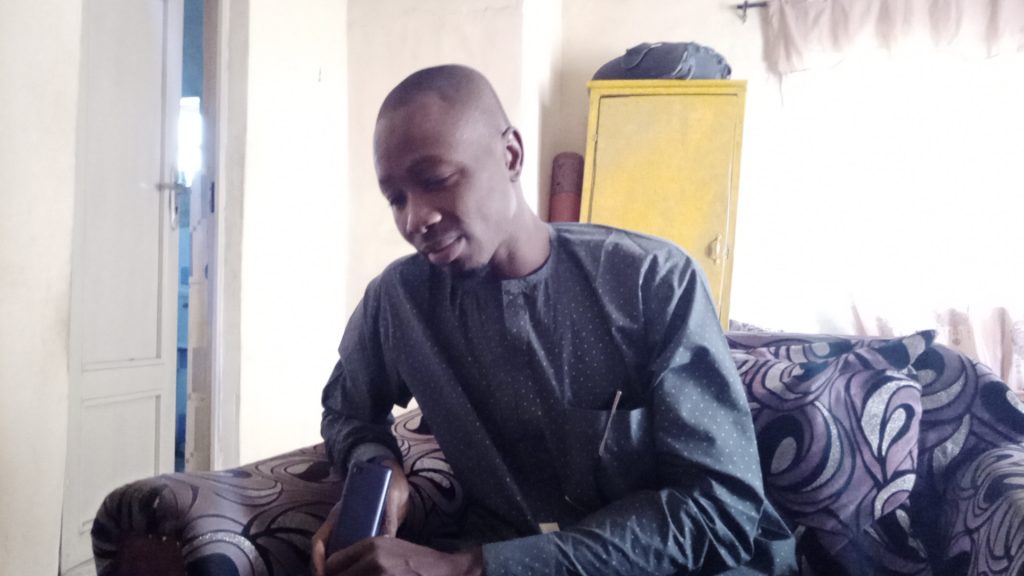
But then, the torture they were subjected to at the police station was insignificant when compared to the SARS experience. They were battered and bruised by the SARS officials.
Later that day, he said, a SARS officer appeared suddenly like an angel of death to unleash more pain on them. “He used a big stick on us, targeting our heads and flogging us repeatedly, while our hands were hand-cuffed,” he said, noting that “the torture persisted for more than three hours”.
While Awalu, after sustaining injuries, could still withstand the torture, Hassan could not; he passed out and was taken to the Murtala Muhammed Specialist Hospital, Kano, and was returned to the cell at about 3 am after receiving treatment for “acute abdomen with I.M. Buscopan and I.V. Omeprazole and discharged in good condition”.
But he wasn’t really discharged in good condition as claimed in the medical report provided by the hospital. No sooner had he returned to the cell than he started “convulsing, blood gushing out of his mouth, nose and ears”.
After several hours in pains and tears, Hassan and Awalu were granted administrative bails to have access to better medical care.
HEAD INJURY AND SEVEN DAYS OF RESPIRATORY FAILURE
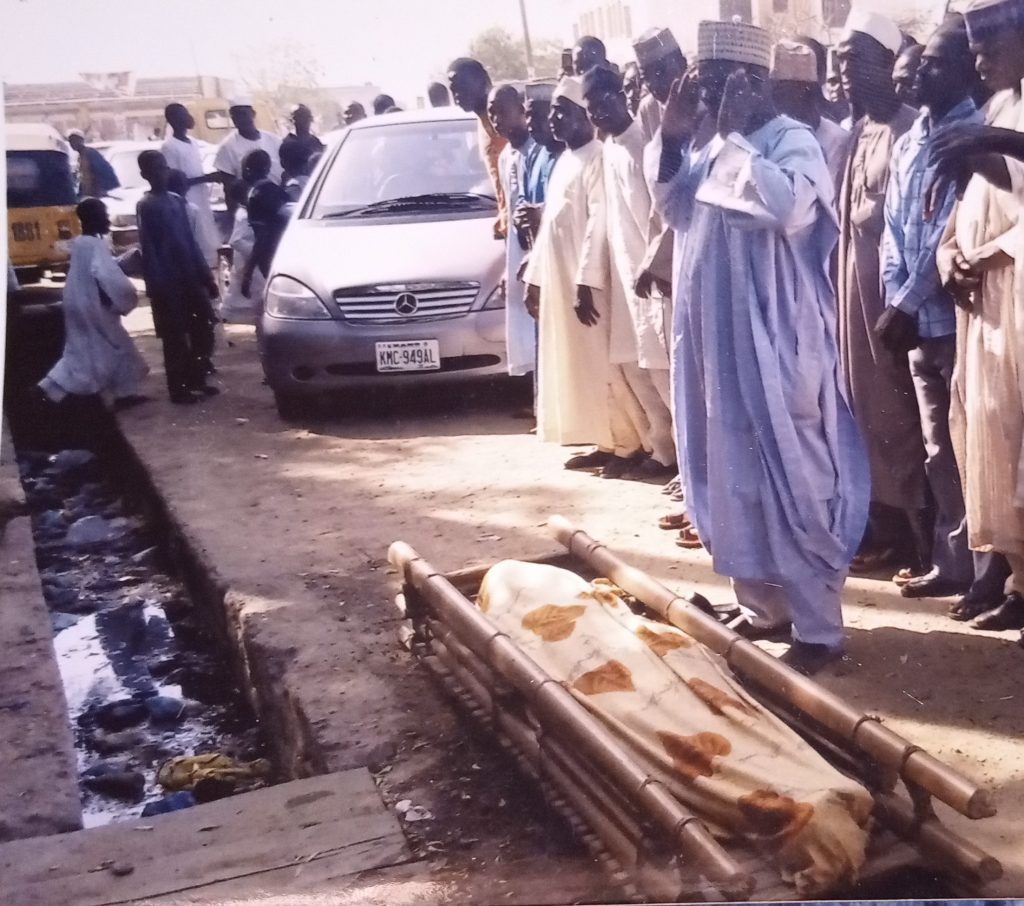
“When they called to inform me that Hassan was sick and I should come take him to the hospital, I recalled that he wasn’t sick before he was taken to the police station,” says Mallam Abdullahi. “So, when I got there, I played on their intelligence by asking them which hospital I should take him to. They told me ‘anywhere’, so I decided to take him to a private hospital, Aulu Memorial Hospital.”
There he died seven days later.
According to the Medical Certificate of Cause of Death issued by the Aulu Memorial Hospital — a copy of it was obtained by FIJ — Hassan died on October 26, 2013 at 4:50 am. The primary cause of his death, the report states, was “head injury while the secondary cause was respiratory failure which had continued for seven days”.
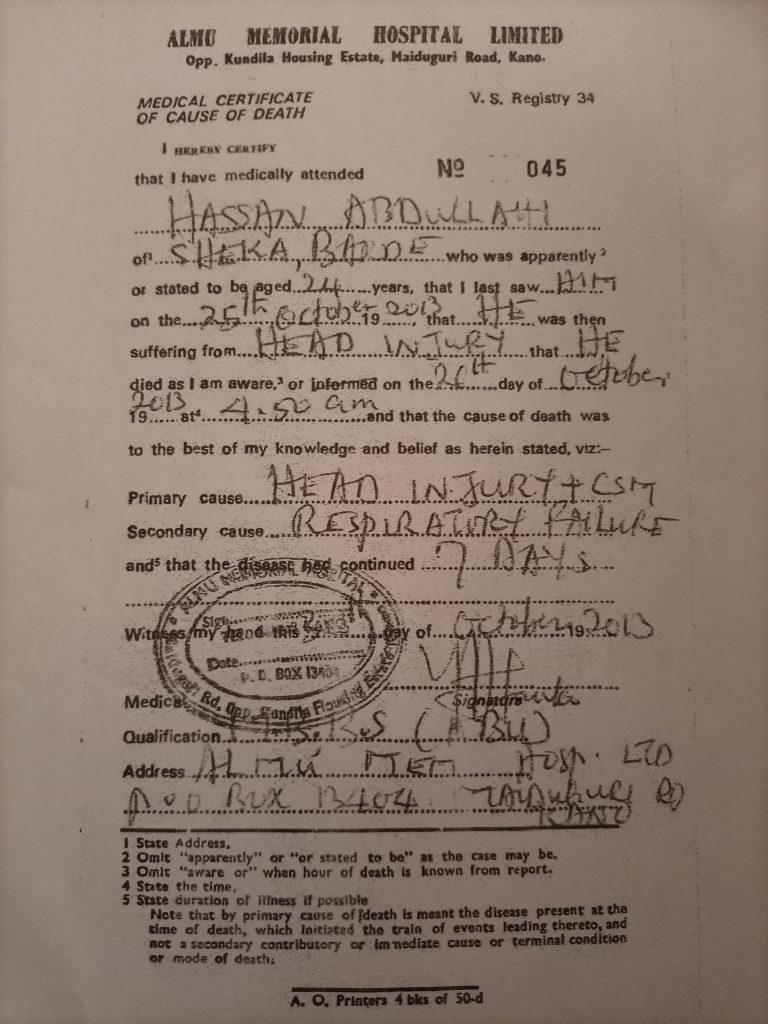
“I am nobody and I believe this is injustice meted to my innocent son. I want justice and I want the public to assist me,” Mallam Abdullahi says, teary-eyed.
CALL HASSAN ONCE AND HE ANSWERED YOU TWICE
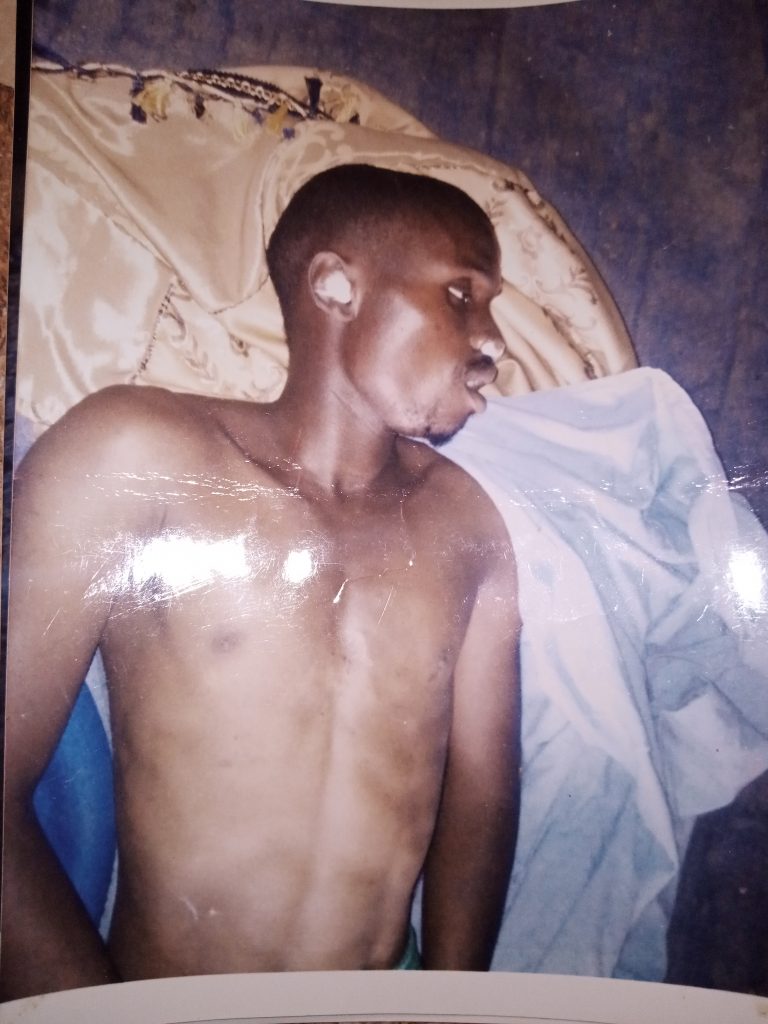
Even though it’s seven years since Hassan’s death, he is still talked about like a living soul. “Everybody loved him; he was good to everyone. He’s everything to me,” says the father.
Blessed with four wives and twenty children, Mallam Abdullahi finds it very difficult to wipe off the memory of one of his children. “How can I forget him?” he asks? “He was the closest to me among my children. If I called on him once, he would answer multiple times; he was my favorite.”

Like every other sane man, he grew up harbouring great dreams. As of 2013, when he died as a consequence of his torture, he had just bagged a scholarship to study at the American University, Cairo, Egypt. Before then, he had enrolled as a student at the Kano State Polytechnic, pursuing his National Diploma.
“We had even acquired his international passport for him, waiting for his visa so that he could travel for scholarship the following month, but sadly, they killed him with his bright future,” his father alaments.
“I almost became hypertensive after his death died; my ailment got complicated because I was always depressed. I awas already an ulcer patient but it became chronic when he died because I couldn’t eat properly.”
YUSUF KOLO, THE SARS OFFICER WHO TORTURED HASSAN
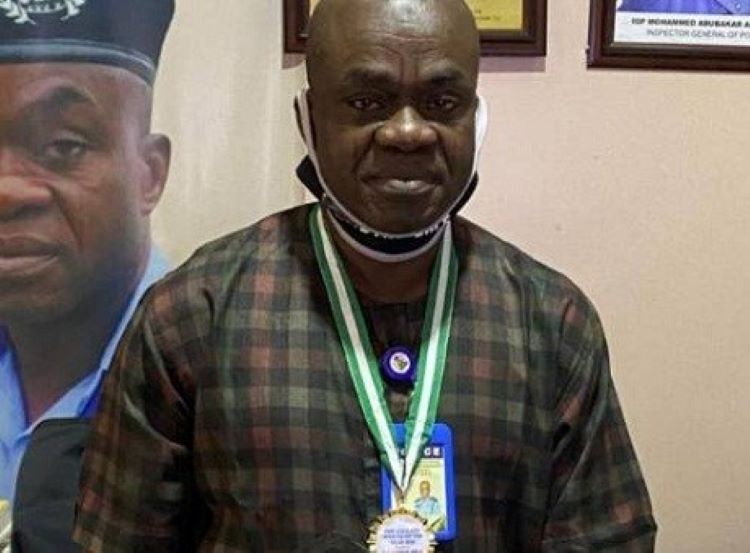
Hassan and his elder brother, Awalu, suffered in SARS custody. Any police officer passing could just stop by to beat them. But it was Yusuf Kolo, Awalu recalls, the Officer-in-Charge of SARS in Kano, back in 2013, who spearheaded the torture.
It was him who suddenly appeared to them in the cell asking them to confess an offece “we never committed”. It was him who hand-cuffed them, tied their legs and used “a big stick on us, targeting our heads and ribs”. It was this same officer who “smashed Hassan’s head on the wall and kicked him in the stomach” until he passed out and was rushed to the hospital.
“It was him who also battered me mercilessly until my knees were injured and I got scars over my body. Up till now, I can’t stand for 20 minutes without sitting as a result of the torture,” the 34-year-old says.
Barrister Yusuf, as he is fondly called, is known to torture detainees, multiple sources familiar with “this barbaric act” told FIJ.
Meanwhile, the Nigerian Constitution prohibits torture and other inhumane treatment of citizens. Section 34(1) states: “Every individual is entitled to respect for the dignity of his person, and accordingly, (a) no person shall be subjected to torture, or to inhuman or degrading treatment”. Article 17(2) (b) also states that “[…] human dignity shall be maintained and enhanced.”
Commenting on the brutalization of citizens by Yusuf Koko and others, Hon. Justice Fatun O. Riman, said: “The police have the right to arrest and detain a suspect upon a complaint being made to the police of reasonable suspicion of his having committed a criminal offence, but the police have no right to torture a suspect, albeit to death. This is very serious and the Inspector General of Police should do something about it.”
‘A BIZZARE MURDER CASE OF INNOCENT CITIZEN BY THE POLICE’
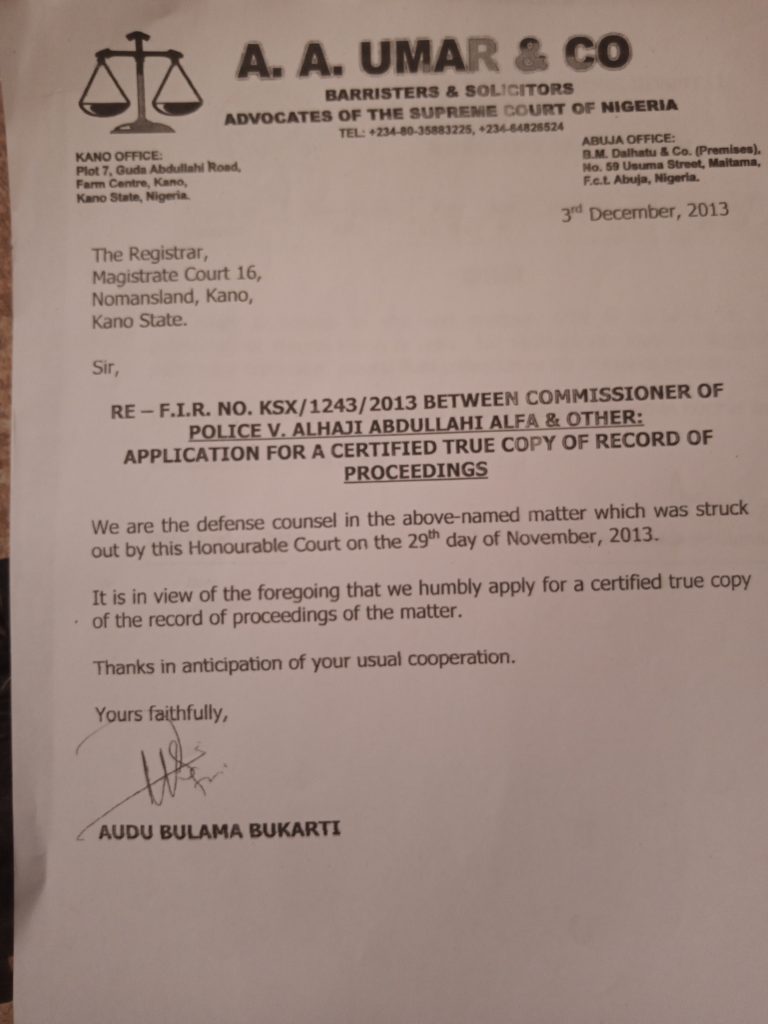
In the spirit of fighting for justice for the deceased, Bulama Bukarti, a human rights lawyer, represented the family of Mallam Abdullahi at the Federal High Court, Kano, to seek redress against Kolo, one SP Umar Abdullahi, Sa’adatu Garba — the woman who got Hassan and Awalu arrested — and others involved in the case.
His prayers before the court included an order enforcing the fundamental rights of his client as enshrined in the Constitution of the Federal Republic of Nigeria; a declaration that the arrest and detention of his client’s sons is the violation to the deceased and his brother’s rights to liberty; and a declaration that the tortures of his client’s sons to the point of death of one of them is “unconstitutional, illegal and unlawful”.
Although the respondents of the application pleaded not guilty, the decision of the court wasn’t in their favour.
“This is a bizarre case of murder of innocent citizen by the police,” ruled Justice Fatun Riman, the Judge who presided over the case.
NO RESPECT FOR COURT ORDERS
In the long run, the court ruled against Yusuf Kolo and his cohorts. According to the judgment of the Federal High Court, Kano, of suit no: FHC/K/CS/84/2013, which was passed on Monday, 20th January, 2014, “the Applicants and the deceased were not armed robbers.”
“I also find and hold that in the circumstances of this case, the contention by the Applicants that their arrest and detention over the complaint of the 6th Respondent (Sa’adatu), was unconstitutional, unlawful and illegal. And therefore, a breach of their fundamental rights as enshrined in the Constitution is, in my considered view, a total misconception and untenable in the circumstances of this case,” the judge said.
“This application succeeds in one part and fails in parts… I award a long sum of N10million against the respondents… I hereby order that the 2nd Applicant be released forthwith.”
By January 20, 2021, it will be exactly eight years since the court gave the judgement, but the respondents have refused to obey the court order. Instead, they filed an appeal at the Court of Appeal, Kaduna, in 2015, only to shun court proceedings.
“They did that intentionally to frustrate the case; they just wanted to frustrate me,” Mallam Abdullahi submitted.
After the absence of the appellants from many of the sittings,the presiding judges dismissed the appeal.
An order given by the court, dated 4th of April, 2019 on the appellants’ suit of Appeal No: CA/K/101/2014, was signed by three justices of the court of appeal: Hon. Justice S.T. Hussaini; Hon. Justice O.A. Adefope-Okojie and Hon. Justice J.G. Abundaga.
“Appellant was served with Hearing Notice against today, 4/4/19. He is not in court. His counsel is not in court either. We take not that a Brief of Argument of the Appellant has been filed since 18/5/15. For failure to appear in court today despite service of Hearing Notice on him (Appellant) the Appeal No. CA/K/101/2014 is struck out. We so order,” the court ruled.
MULTIPLE PROMOTION AS REWARD FOR MURDER
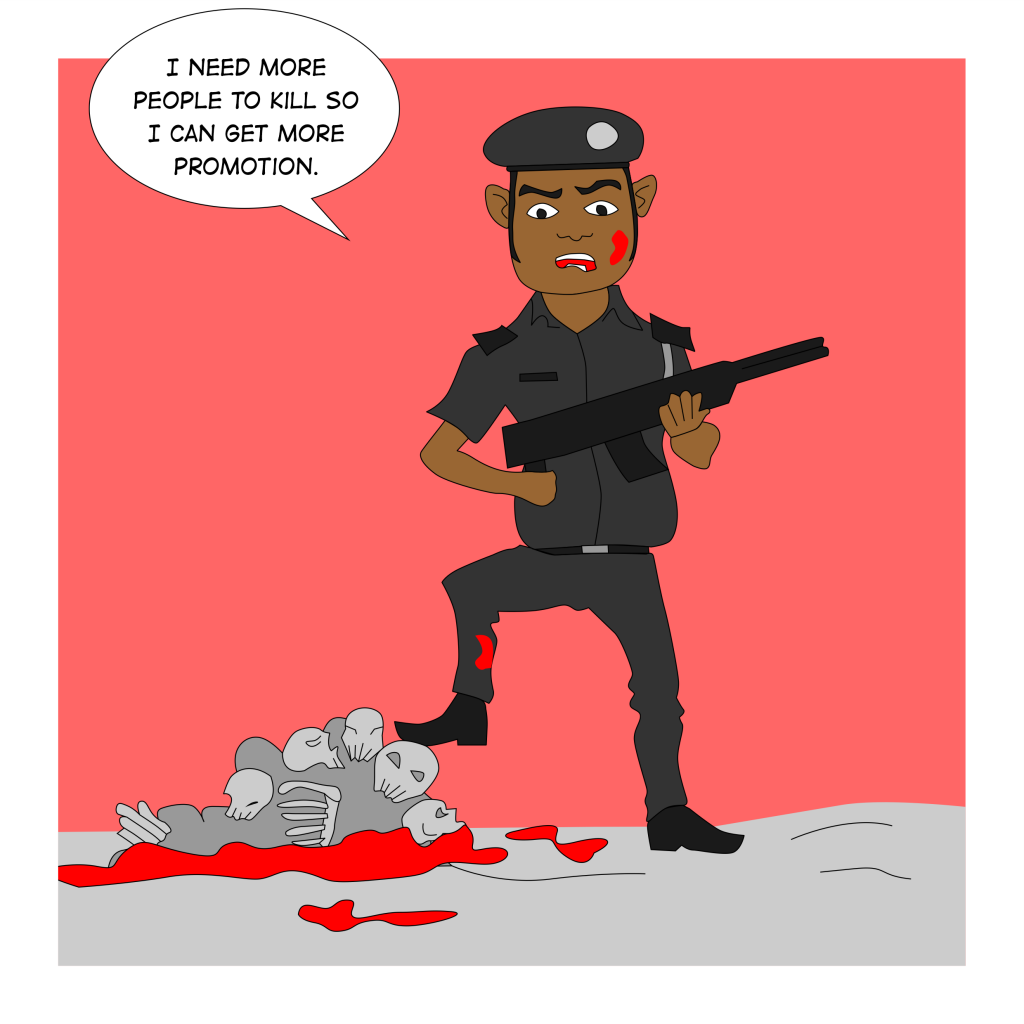
Seven years have passed since Kolo’s active involvement in Hassan’s death. Was he punished? No! But he bagged multiple promotions afterwards.
Today, he is one of the most senior and decorated police officers in Nigeria. In 2013, while serving in Kano, he was the Officer-in-Charge of SARS in the state. Months after he supervised the killing of Hassan, he was transferred to Abuja to become the Head of SARS in Abuja. And in a couple of years, he was promoted to the position of Deputy Commander of the IGP Special Tactical Squad (STS) Force Headquarters; he later emerged the Commander of the same squad. He was also honoured by some unnamed journalists as ‘Gallant Officer of the Year 2020’. “I will double my efforts in fighting crime,” he was quoted to have said.
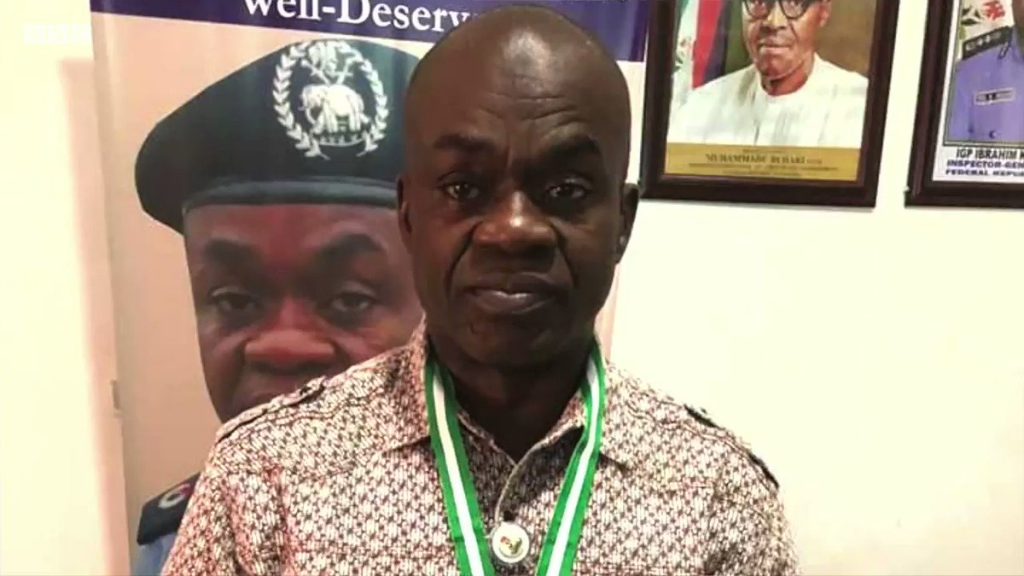
However, on social media, Nigerians have recently condemned the extrajudicial operations of DCP Yusuf and his cohorts.
“Folks, in the midst of all the good frenzy about #EndSARS, plus #SARSMUSTEND, pls don’t forget about #EndSTS, the Special Tactical Squad led by one DCP YUSUF KOLO, who does not believe in the Rule of Law. He & his STS at Guzape, Abuja are worse than #SARS. @d_retweetHQ, pls note,” Amaka Oyibo, a Twitter user, said.
FIJ contacted Kolo for comments, but he simply told our reporter: “The matter is in court and I can’t say anything on it now.”
Asked to comment on why he refused to appear at the court of appeal, he said: “Which court?.. You’re not even current. I’m a lawyer…If you’re a good investigative journalist, come to my office.”
Subscribe
Be the first to receive special investigative reports and features in your inbox.


